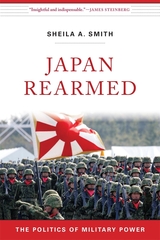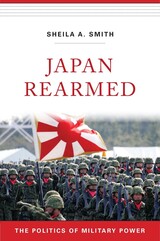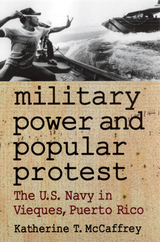
Japan’s U.S.–imposed postwar constitution renounced the use of offensive military force, but, as Sheila Smith shows, a nuclear North Korea and an increasingly assertive China have the Japanese rethinking that commitment, and their reliance on United States security.
Japan has one of Asia’s most technologically advanced militaries and yet struggles to use its hard power as an instrument of national policy. The horrors of World War II continue to haunt policymakers in Tokyo, while China and South Korea remain wary of any military ambitions Japan may entertain. Yet a fundamental shift in East Asian geopolitics has forced Japan to rethink the commitment to pacifism it made during the U.S. occupation. It has increasingly flexed its muscles—deploying troops under UN auspices, participating in coercive sanctions, augmenting surveillance capabilities, and raising defense budgets.
Article Nine of Japan’s constitution, drafted by U.S. authorities in 1946, claims that the Japanese people “forever renounce the use of force as a means of settling international disputes.” When Prime Minister Shinzo Abe broke this taboo by advocating revision of Article Nine, public outcry was surprisingly muted. The military, once feared as a security liability, now appears to be an indispensable asset, called upon with increasing frequency and given a seat at the policymaking table.
In Japan Rearmed Sheila Smith argues that Japan is not only responding to increasing threats from North Korean missiles and Chinese maritime activities but also reevaluating its dependence on the United States. No longer convinced that they can rely on Americans to defend Japan, Tokyo’s political leaders are now confronting the possibility that they may need to prepare the nation’s military for war.

“Washington’s relationship with Tokyo is generally considered the most important of the United States’ 70-odd alliances. In this intimately knowledgeable book, Smith shows how that alliance looks to the Japanese: increasingly unreliable.”—Andrew J. Nathan, Foreign Affairs
“Masterfully traces the interplay of Japan’s military heritage, politics, national sentiment, threats, and alliance with the United States in the formation and development of the Self-Defense Force. Even experts will find new information and insights.”—Admiral Dennis Blair, US Navy (Ret.), former Commander-in-Chief, US Pacific Command
“A must-read for US policymakers responsible for Asia.” —J. Thomas Schieffer, former US Ambassador to Japan
“A highly readable and richly detailed account of Japan’s rearmament and the politics surrounding it.”—Journal of American–East Asian Relations
Japan has one of Asia’s most technologically advanced militaries, yet it has struggled to use its hard power as an instrument of national policy. The horrors of World War II continue to haunt policymakers in Tokyo, but a fundamental shift in East Asian geopolitics has forced Japan to rethink its commitment to pacifism. Its military, once feared as a security liability, now appears to be an indispensable asset.
In Japan Rearmed, Sheila Smith argues that Japan is not only responding to threats from North Korean missiles and Chinese maritime activities, it is fundamentally reevaluating its dependence on the United States as its leaders confront the very real possibility that they may soon need to prepare for war.

Residents of Vieques, a small island just off the east coast of Puerto Rico, live wedged between an ammunition depot and live bombing range for the U.S. Navy. Since the 1940s when the navy expropriated over two-thirds of the island, residents have struggled to make a life amid the thundering of bombs and rumbling of weaponry fire. Like the armys base in Okinawa, Japan, the facility has drawn vociferous protests from residents who challenged U.S. security interests overseas. In 1999, when a local civilian employee of the base was killed by a stray bomb, Vieques again erupted in protests that have mobilized tens of thousands individuals and transformed this tiny Caribbean Island into the setting for an international cause célèbre.
Katherine T. McCaffrey gives a complete analysis of the troubled relationship between the U.S. Navy and island residents. She explores such topics as the history of U.S. naval involvement in Vieques; a grassroots mobilizationled by fishermenthat began in the 1970s; how the navy promised to improve the lives of the island residentsand failed; and the present-day emergence of a revitalized political activism that has effectively challenged naval hegemony.
The case of Vieques brings to the fore a major concern within U.S. foreign policy that extends well beyond Puerto Rico: military bases overseas act as lightning rods for anti-American sentiment, thus threatening this countrys image and interests abroad. By analyzing this particular, conflicted relationship, the book also explores important lessons about colonialism and postcolonialism and the relationship of the United States to the countries in which it maintains military bases.
READERS
Browse our collection.
PUBLISHERS
See BiblioVault's publisher services.
STUDENT SERVICES
Files for college accessibility offices.
UChicago Accessibility Resources
home | accessibility | search | about | contact us
BiblioVault ® 2001 - 2024
The University of Chicago Press









